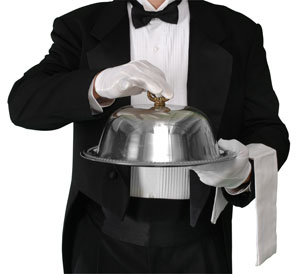 For business purposes, marketing campaigns were designed to entice consumers to want things they did not necessarily need by surreptitiously aligning their products with these unconscious desires such as: status, being sexy and desirable, self-esteem, prestige, being superior and better than, overall sense of worth and wellbeing, being a member of the “in” group, being adored and admired, and being popular.
For business purposes, marketing campaigns were designed to entice consumers to want things they did not necessarily need by surreptitiously aligning their products with these unconscious desires such as: status, being sexy and desirable, self-esteem, prestige, being superior and better than, overall sense of worth and wellbeing, being a member of the “in” group, being adored and admired, and being popular.
What has followed since has been an endless parade of celebrity endorsements, PR chicanery, stunt-selling, sexual innuendo, and more, all with the intention of offering the consumer an inclusion to the illusion of happiness and status through association.
The Century of the Self series goes on to explore the massive marketable potential of not only desire, but of fear, and that deep within all of us lies these animalistic instincts that need to be harnessed and controlled. For instance, this concept explained the disaster visited upon humanity that was Nazi Germany.
Fear is a powerful motivator. Curtis explored how the government manipulated fear to repress our natural, subconscious savage instincts to preserve democracy and prevent self-annihilation of our race.
The series then goes on the cover the backlash of this tendency towards mind-control to the 1960s when a radical group of psychotherapists challenged the influence of Freudian theories, inspired by the ideas of Wilhelm Reich, a pupil of Freud’s, who advocated that the inner self did not need to be repressed and controlled. It should be encouraged to express itself.
Out of this came a political movement that sought to create new beings free of the psychological conformity that had been implanted in people’s minds by business and politics.
This program shows how this rapidly developed in America through self-help movements like Werner Erhard’s Erhard Seminar Training (EST) – into the irresistible rise of the expressive self: “the Me Generation.”